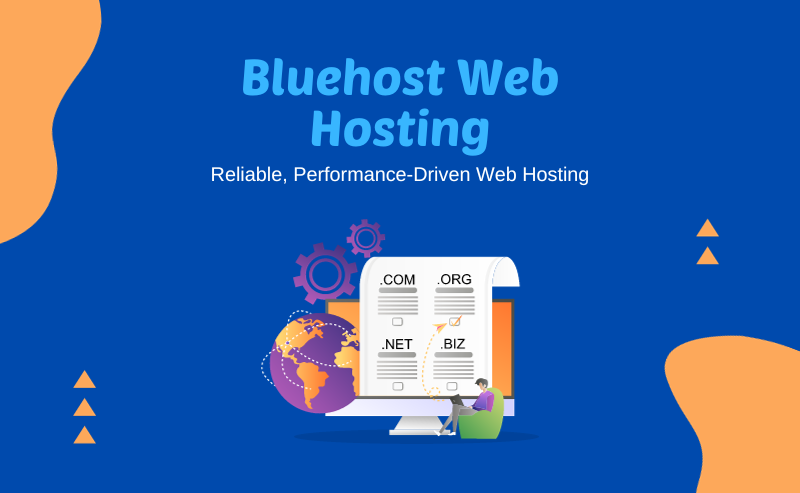Looking to compare shared hosting and WordPress hosting? Let’s dive into the key differences and how they can impact your website’s performance. Shared hosting is a budget-friendly choice for small websites, but it can slow down WordPress sites due to shared resources. On the other hand, WordPress hosting is optimized for better performance and security, making it the ideal option for those who prioritize speed and reliability.
When it comes to security, both shared hosting and WordPress hosting offer similar levels of protection. However, WordPress hosting often goes the extra mile with features like malware scanning and automated backups. If security is a top priority for you, considering WordPress hosting is a wise move.
For beginners, shared hosting is more affordable and user-friendly, making it a perfect choice for those new to website hosting. But if you expect your website to grow in the future, starting with a reputable provider like Bluehost or A2 Hosting can offer the flexibility to upgrade to WordPress hosting later.
Moving from shared hosting to WordPress hosting is a breeze. Just back up your files, set up the new hosting, install WordPress, import your content, and update your settings. If you’re in search of a reliable host for your WordPress site, both Bluehost and A2 Hosting are excellent options to consider.
What Are The Primary Differences Between Shared Hosting and WordPress Hosting?
The primary differences between shared hosting and WordPress hosting lie in their target audience, performance, and features. Shared hosting is a cost-effective option suitable for small websites with low traffic and basic functionalities, while WordPress hosting is specifically optimized for hosting WordPress sites, offering better performance and security.
Shared hosting has limitations in terms of performance and resources, as the server’s resources are shared among multiple websites. This can result in slower loading times and limited scalability. On the other hand, WordPress hosting is typically optimized for better performance, with features like caching and content delivery networks (CDNs) to enhance website speed. It also offers better security measures, including regular backups and automatic WordPress updates.
In terms of features, shared hosting may have limitations on the number of WordPress installations or plugins allowed. WordPress hosting usually includes features like one-click WordPress installation, staging environments for testing, and specialized support for WordPress-related issues.
Therefore, if you are planning to build a WordPress website or already have one, opting for a WordPress hosting provider like Bluehost or A2 Hosting can offer better performance, security, and specialized features tailored for WordPress sites.
How Does Shared Hosting Impact The Performance of a WordPress Site Compared to Dedicated WordPress Hosting?
Shared hosting can significantly affect the performance of a WordPress site compared to dedicated WordPress hosting. With shared hosting, multiple websites share the same server resources, such as CPU, RAM, and storage. As a result, loading times can be slower and overall website performance can be hindered, particularly during times of high traffic.
In contrast, dedicated WordPress hosting allocates dedicated resources solely for your website, leading to faster loading times, better security, and overall improved performance. To enhance your WordPress site’s performance, it is advisable to consider reputable hosting providers like Bluehost or A2 Hosting, as they offer better solutions for optimization.
Does Shared Hosting or WordPress Hosting Offer Better Security Protections?
In terms of security protections, both shared hosting and WordPress hosting can offer similar levels of security. Shared hosting provides basic security measures such as firewall protection and regular server updates to keep your website safe. WordPress hosting, on the other hand, is specifically optimized to protect WordPress sites and offers additional security features like malware scanning, brute force attack protection, and automatic backups.
However, it’s important to remember that the security of your website also depends on other factors such as the themes and plugins you use, as well as how well you maintain and update your website. While WordPress hosting may have extra security measures tailored for WordPress sites, it does not guarantee complete immunity from security threats.
If security is a top priority for you, considering reputable hosting providers like Bluehost or A2 Hosting can be a potential solution. They offer enhanced security features and dedicated support to ensure the safety of your website. Additionally, regardless of the type of hosting you choose, it’s important to regularly update your themes, plugins, and WordPress version, and implement best practices for website security to further enhance protection.
For Someone New to Website Hosting, Should They Start with Shared Hosting or WordPress Hosting?
For beginners in website hosting, starting with shared hosting is the way to go. It’s an affordable option that allows multiple websites to share server resources. Perfect for those who have limited technical knowledge and want a cost-effective solution. Shared hosting comes with a user-friendly control panel for easy website management.
In contrast, WordPress hosting is optimized specifically for hosting WordPress websites. While it offers benefits like automatic updates, improved performance, and specialized support, it can be overwhelming for newcomers. It’s generally pricier and requires more technical expertise to make the most of its features.
To start off, consider hosting providers like Bluehost or A2 Hosting, which offer both shared hosting and WordPress hosting. This gives you the flexibility to upgrade to WordPress hosting later on, once you’ve gained more experience and knowledge in managing your website.
Can You Easily Transition a Site from Shared Hosting to WordPress Hosting, and What Does That Process Look Like?
Yes, transitioning a site from shared hosting to WordPress hosting is a simple process. Here are the steps to follow:
1. Back up your site’s files and database from the shared hosting account.
2. Set up a new WordPress hosting account with a reliable provider like Bluehost or A2 Hosting.
3. Install WordPress on the new hosting server.
4. Import your site’s content and database using the WordPress import function or by manually uploading the backup files.
5. Update the necessary settings, such as the domain name and database credentials, to ensure your site functions properly on the new hosting environment.
By following these steps and using reputable hosting providers, you can transition your site smoothly and efficiently without losing any content or compromising its functionality.
Shared Hosting or WordPress Hosting: Which Should You Choose for Your Website’s Success?
Shared Hosting vs WordPress Hosting: In conclusion, both shared hosting and WordPress hosting can serve as reliable solutions, depending on your website’s specific needs and your level of expertise. Shared hosting is a budget-friendly option, ideal for beginners with smaller websites or those who are still learning the ropes of web hosting. It offers basic functionality that allows one to get started with minimum investment. On the other hand, WordPress hosting is tailored for those who prioritize the performance and security of their WordPress sites. With features specifically optimized for WordPress, including enhanced security measures, dedicated support, and performance-boosting tools, it represents a valuable upgrade for websites that demand more resources or experience higher traffic levels.
When choosing between the two, consider not only your current needs but also your future growth plans. If you’re just starting out or have a limited budget, shared hosting might be the perfect starting point. However, as your website grows and attracts more traffic, transitioning to a specialized WordPress hosting plan could provide the necessary enhancements in speed, reliability, and security.
Remember that your choice of web host can have significant implications on the success of your website. Opting for reputable providers like Bluehost or A2 Hosting can offer peace of mind through their reliable services and ease of scalability. Regardless of which path you choose initially – shared hosting or wordpress hosting – these hosts can support you throughout your website’s evolution, ensuring a smooth transition when it’s time to upgrade.


